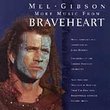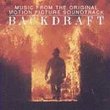| All Artists: Alan Silvestri Title: G.I. Joe: The Rise of Cobra [Score From the Motion Picture] Members Wishing: 1 Total Copies: 0 Label: Varese Sarabande Original Release Date: 1/1/2009 Re-Release Date: 8/4/2009 Album Type: Soundtrack Genres: Pop, Soundtracks Style: Number of Discs: 1 SwapaCD Credits: 1 UPCs: 030206698022, 4005939698027 |
Search - Alan Silvestri :: G.I. Joe: The Rise of Cobra [Score From the Motion Picture]
![G.I. Joe: The Rise of Cobra [Score From the Motion Picture]](https://nationalbookswap.com/cd//l/93/6593/1616593.jpg) | Alan Silvestri G.I. Joe: The Rise of Cobra [Score From the Motion Picture] Genres: Pop, Soundtracks
No Description Available. Genre: Soundtracks & Scores Media Format: Compact Disk Rating: Release Date: 4-AUG-2009 |
Larger Image |
CD DetailsSynopsis
Product Description No Description Available. Genre: Soundtracks & Scores Media Format: Compact Disk Rating: Release Date: 4-AUG-2009 Similarly Requested CDs
|
CD ReviewsDecent action finale spoiled by dull opening 45 mins Jon Broxton | Thousand Oaks, CA | 08/04/2009 (2 out of 5 stars) "Looking back at my childhood, I now realize that I was probably very unconventional in how I spent my time. I never read comic books. With the exception of the classic Kenner Star Wars ones, I never played with action figures very much. I was never really into guns and army toys and ninjas and whatnot. I played soccer and tennis, watched a lot of movies and sports on TV, read a lot, and wrote a lot. All this probably goes to explain why, when I first heard that they were making a big budget G.I Joe movie (and unlike several of my friends, who were positively giddy with excitement), my response was a disinterested shrug. Having had to do some research prior to writing this review, I now know that G.I. Joe is a very popular military-themed line of action figures created by Hasbro in the 1960s, which has since spawned comic books, various animated TV shows and video games, and now a feature film entitled G.I. Joe: The Rise of Cobra, directed by Stephen Sommers. The film stars Channing Tatum as Duke Hauser, the leader of an ultra-elite international fighting force created to stop the evil Cobra Organization, who have nefarious plans for world domination. The film also stars Dennis Quaid, Rachel Nichols, Ray Park, Marlon Wayans and Adewale Akinnuoye-Agbaje as the members of the G.I. Joe team, as well as Christopher Eccleston, Joseph Gordon-Levitt and Sienna Miller as the operatives of Cobra. For the score, Sommers turned to his long-time collaborator Alan Silvestri, with whom he had previously worked on The Mummy Returns and Van Helsing. Since writing one of the best scores of his career for The Polar Express in 2004, Alan Silvestri's recent output has been unusually disappointing. Scores like The Wild, Beowulf, and his two Night at the Museum scores were OK at best, and unfortunately G.I. Joe continues the run of comparative flops. More than anything, G.I. Joe was tiring; it runs for just over an hour, but feels like double that, such is the relentless pounding and jackhammering from Silvestri's orchestra. It has a large ensemble, a wide scope, lots of electronics, a frenetic pace, and of course it's written by the usually superb Alan Silvestri, so you would think that all the ingredients would be there - but, for some reason, far too much of it just comes across as annoying and loud. Part of the problem might be the lack of a memorable theme. Of course, having strong, front-and-center themes are not and have never been a prerequisite in any score, but when you have as much comic book energy and ambitions to appeal to a younger target demographic as G.I. Joe does, there's usually some kind of thematic catch on which to build everything else around. There is a main theme, of course, but it's so unassuming that you barely notice it's there. It's first prominent appearance is actually somewhat misleading, when it features as a gentle string interlude in "What Happened To Her?", one of the score's few soft moments. For the rest of the time, listening to G.I. Joe is like listening to a long 70-minute action cue, a combination of the more frenetic stylings from scores like The Mummy Returns, Eraser, and The Long Kiss Goodnight, with an occasional bit of Predator's nervous percussion, Van Helsing's relentless rhythms and The Cradle of Life's glory thrown in for good measure. But, whereas with these other scores, there's usually a melodic payoff at regular intervals, on G.I. Joe you feel like you're waiting for a statement of a theme which never comes. Having said that, on its own terms, some of the action music is actually pretty good. Early album cues such as "Delivering the Warheads", "The Pit Battle" and "The Joes Mobilize" have a heavy electronic element in addition to the large orchestral forces, and are certainly exciting, albeit in a slightly over the top heroic way. Also, "King Cobra" introduces a menacing 5-note motif clearly intended to represent the evil Cobra organization and its agents of destruction, but which gets sadly lost in the mire as the score progresses, and is barely heard again. Conversely, cues such as the opening "Clan McCullen" and "They Intend To Use Them" feature brooding suspense music underpinned by muddy electronic pulses, while other efforts like "MARS Industries" and "General Hawk" are even less successful, pseudo techno/rock tracks with wailing electric guitars that have little redeeming value other than to amp up the adrenaline. The album's second half fares much better, and from "Who Are You?" onwards, Silvestri dispenses almost entirely with his synthesizers and relies on old fashioned orchestral action writing to get his point across. The score never becomes more subtle, and is never anything less than in-your-face bombast, but at least you can hear the composer at work instead of him being clouded by the electronica. Cues like "Deploy the Sharcs", the patriotic "Final Battle" and the rousing "Just About Close Enough" are breathlessly exciting, lifting the score, and providing an enjoyable 20 minutes or so which stands apart from the sludge that the first half of the album inhabits. By far the best cue on the album is the last one - "End Credits" - which takes all the energy and dexterity of the preceding action music and wraps it - finally - around the huge, heroic performance of the main G.I. Joe theme that you have been waiting an hour to hear. Part of the problem here is to do with the structuring of the album; if Silvestri had perhaps kicked off the CD with a concert performance of the main theme, listeners would know what to listen for as the score progresses. As it stands, the score seems to meander along for an hour with no clear thematic core, and it's only at the end that you actually realize what the main theme sounds like. Of course, from then on, you can go back and pick it out with repeated listens, but by that time you may have lost the will to live. One thing I noticed while listening to this score is that, once in a while, you hear a turn of phrase or a certain chord which makes you go "aha!", and brings back memories of some of the classic Alan Silvestri scores of old. However, by the end of the score the cumulative effect of all these little nostalgic flashbacks is simply to remind you what a great composer Silvestri can be, and what a great score G.I. Joe is not. Perhaps I'm being unkind; when you compare G.I. Joe to scores like Transformers 2, and Watchmen from earlier this year, Silvestri's music is clearly light years ahead of anything Steve Jablonsky and Tyler Bates can write: Silvestri at least has interesting orchestrations and some clever instrumental combinations, and more than a little bit of panache in his writing. But this really is a case of damning with faint praise: Silvestri could have recorded himself whistling "Mary Had a Little Lamb" and had it show more compositional nous than either Transformers 2 or Watchmen." Good but not great William Smith | Djacarta | 08/08/2009 (4 out of 5 stars) "Far be it from me to suggest people lower their standards but let's face it: the new crop of score composers are great while the old composers are... well, old.
Alan Silvestri has fallen to what I call Horner-itis. The symptoms include repetitive cues, lack of a coherent theme and constant re-hashing of old material (and not the good old material). Now, this doesn't mean he is in any way a bad composer, or that his music doesn't have appeal. It's true, there's not much originality to Silvestri's "G.I. Joe" score, but it's been playing nonstop in my CD player all week and probably will for weeks to come. "G.I. Joe" is a surprisingly catchy, action packed score that is incredibly enjoyable. I love it. I can't stop listening to it. It has the right action beats, sufficient variation in its "themes" and its length doesn't leave much to be desired, it's really all there. And best of all, having just seen the film, it plays superbly with the action on screen. I do wish that when the marketing department gets together to sell these things, they don't bring up Silvestri's work on "Back to the Future" or "Predator". He just doesn't write that kind of music anymore. I can't remember the last time Silvestri created a really memorable theme. But that doesn't mean his music isn't easy to listen to. I would normally give this three stars, but the extra star is for the replay value of the album. Don't expect a work reminiscent of past greatness, but do expect an established and well credited composer to do his job and deliver music worth listening to. It's worth a purchase, and guarantees to entertain." |

 Track Listings (21) - Disc #1
Track Listings (21) - Disc #1








